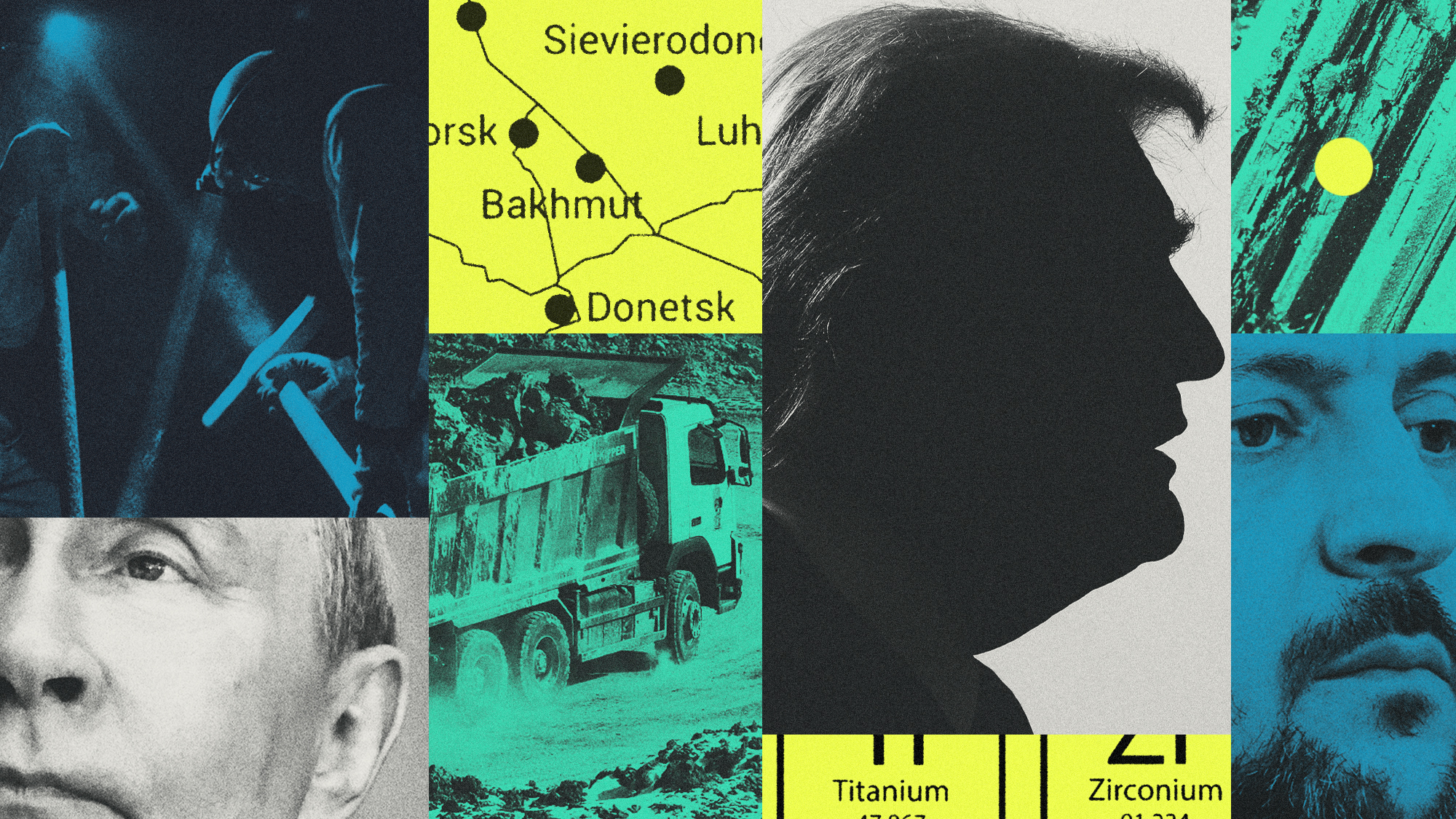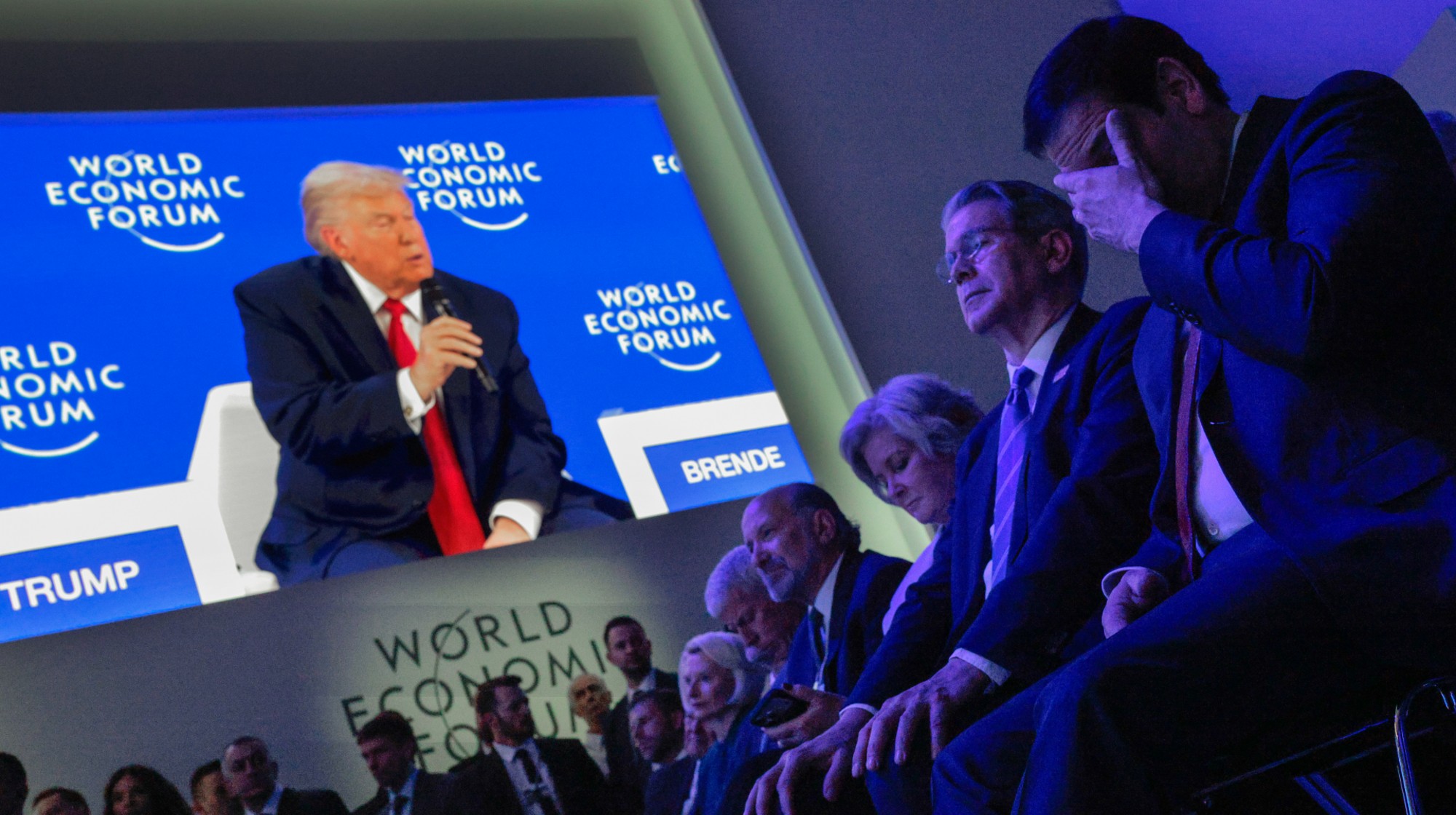Ukraine-US minerals deal: is Trump turning away from Putin?
US shows 'exasperation' with Russia and signs agreement with Ukraine in what could be a significant shift in the search for peace

A free daily email with the biggest news stories of the day – and the best features from TheWeek.com
You are now subscribed
Your newsletter sign-up was successful
Kyiv and Washington have struck a deal that will allow the US to share profits from the mining of Ukraine's mineral reserves, raising hope that Donald Trump will push Russia to make peace.
The White House said the US now has "an economic stake" in securing a "peaceful and sovereign future" for Ukraine but key questions remain unanswered.
Ukraine's supporters hope the agreement will at least lead Trump "to see the country as something more than a money pit and an obstacle to improved relations" with Vladimir Putin, said The New York Times, but it will only kick in after fighting with Russia stops. And there is "no indication" that it gives Ukraine "any explicit American security guarantees against future Russian aggression", said Lisa Haseldine in The Spectator.
The Week
Escape your echo chamber. Get the facts behind the news, plus analysis from multiple perspectives.

Sign up for The Week's Free Newsletters
From our morning news briefing to a weekly Good News Newsletter, get the best of The Week delivered directly to your inbox.
From our morning news briefing to a weekly Good News Newsletter, get the best of The Week delivered directly to your inbox.
What did the commentators say?
For months, Trump has been "bullying" Ukrainian president Volodymyr Zelenskyy, "blaming him for the war", while playing nice with Putin, said Jamie Dettmer at Politico. Then, last week, Trump threatened Russia with more sanctions and posted "Vladimir, STOP!" on Truth Social: was this "rare public rebuke of Putin" a sign of a key "shift" in US thinking?
A "frustrated" White House is becoming increasingly unsure of Putin's "willingness to end the war", said Shelby Magid at the New Atlanticist. And the minerals deal now signals US commitment to a "free, sovereign Ukraine", which completely "undercuts" the Kremlin's aims. Ukraine is now "in its strongest position" with Washington "since Trump took office".
Ukraine's "fragile new confidence" is not centred on the belief that Trump "is about to deliver peace for the ages", said The Economist. "Rather it comes from a shift in mood – a sense that the American president may finally have got Vladimir Putin's number" and might even "have begun to respect his Ukrainian counterpart."
And yet, over the course of "his entire political life, Trump has never truly stood up to" Putin, said Jonathan Lemire in The Atlantic. Recently, "perhaps fearing that he's being humiliated", the US president has "started to show glimpses of exasperation". But few White House insiders have any sense of when or if he might take a stand and, even if he does, he's unlikely to truly "excoriate Putin".
A free daily email with the biggest news stories of the day – and the best features from TheWeek.com
What next?
The minerals deal allows Ukraine to retain control over its natural resources, and its share of any profits "will be reinvested in post-war rebuilding", said The New York Times. But Zelenskyy "has made clear that the minerals agreement is not an end in itself". For him, signing the deal helps clear the way "to more consequential talks" on US military support and, ultimately, a ceasefire.
Trump has indicated that he will now give Russia and Ukraine "two weeks or so to come to the negotiating table" to work out a peace deal, said The Spectator's Haseldine.
Ukraine will be pulling out all the stops to show Trump that "when the clock runs out on that fortnight and fighting continues, it is Moscow – not Kyiv – who's to blame".
-
 Bondi, Democrats clash over Epstein in hearing
Bondi, Democrats clash over Epstein in hearingSpeed Read Attorney General Pam Bondi ignored survivors of convicted sex offender Jeffrey Epstein and demanded that Democrats apologize to Trump
-
 Are Big Tech firms the new tobacco companies?
Are Big Tech firms the new tobacco companies?Today’s Big Question Trial will determine if Meta, YouTube designed addictive products
-
 El Paso airspace closure tied to FAA-Pentagon standoff
El Paso airspace closure tied to FAA-Pentagon standoffSpeed Read The closure in the Texas border city stemmed from disagreements between the Federal Aviation Administration and Pentagon officials over drone-related tests
-
 Trump’s fuel blockade puts Cuba in crisis mode
Trump’s fuel blockade puts Cuba in crisis modeIN THE SPOTLIGHT Plummeting tourism, scrambling airlines and rolling blackouts are pushing Cuban society to the brink
-
 US, Russia restart military dialogue as treaty ends
US, Russia restart military dialogue as treaty endsSpeed Read New START was the last remaining nuclear arms treaty between the countries
-
 What happens now that the US-Russia nuclear treaty is expiring?
What happens now that the US-Russia nuclear treaty is expiring?TODAY’S BIG QUESTION Weapons experts worry that the end of the New START treaty marks the beginning of a 21st-century atomic arms race
-
 Iran and US prepare to meet after skirmishes
Iran and US prepare to meet after skirmishesSpeed Read The incident comes amid heightened tensions in the Middle East
-
 Which way will Trump go on Iran?
Which way will Trump go on Iran?Today’s Big Question Diplomatic talks set to be held in Turkey on Friday, but failure to reach an agreement could have ‘terrible’ global ramifications
-
 Ukraine, US and Russia: do rare trilateral talks mean peace is possible?
Ukraine, US and Russia: do rare trilateral talks mean peace is possible?Rush to meet signals potential agreement but scepticism of Russian motives remain
-
 Trump backs off Greenland threats, declares ‘deal’
Trump backs off Greenland threats, declares ‘deal’Speed Read Trump and NATO have ‘formed the framework for a future deal,’ the president claimed
-
 How oil tankers have been weaponised
How oil tankers have been weaponisedThe Explainer The seizure of a Russian tanker in the Atlantic last week has drawn attention to the country’s clandestine shipping network